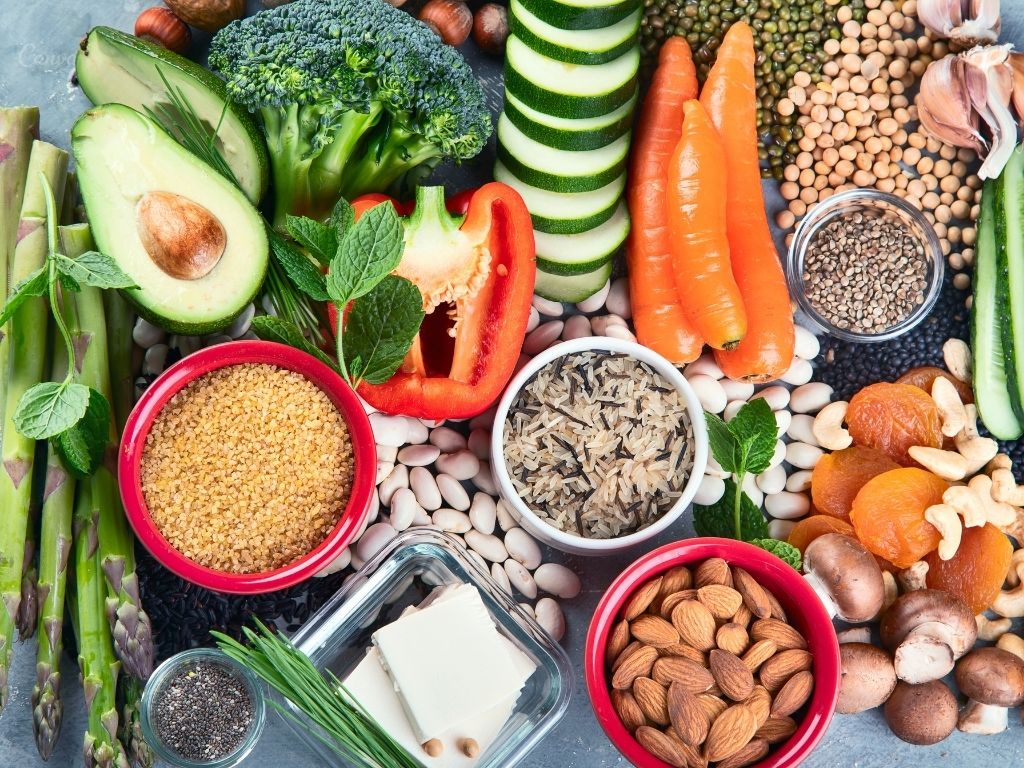You don’t have to eat meat to get your daily dose of protein-in fact, there are many ways you can add protein to a plant-based diet.
You can enjoy lentils, beans, nuts, seeds, and more to make sure you’re getting enough protein to meet your body’s needs.

One of the biggest misconceptions about a plant-based diet is that it can’t provide enough protein for your body.
In reality, there are plenty of high-protein plant foods that you can incorporate into your diet in order to ensure that you’re getting all the protein you need.
Another important thing to keep in mind when trying to get protein on a plant-based diet is that it’s not just about the quantity of protein you consume; it’s also about the quality of the protein you eat.
That means making sure that your source of protein is high in essential amino acids.
For example, quinoa is a great source of protein that also provides plenty of other important nutrients like fiber and minerals.
At the end of the day, a plant-based diet can provide all the protein your body needs to function properly.
By including a variety of high-protein plant foods in your diet, you can make sure you’re getting all the nutrients you need to stay healthy and energized.
A plant-based diet can provide all the protein your body needs to function properly, but some people find it challenging to get enough protein on a vegan or vegetarian diet.
This is often because they don’t know about all the different high-protein plant foods available, or they don’t know how to include them in their meals.
How To Get Enough Protein On A Plant-Based Diet
How to get enough protein on a plant-based diet is an important topic, as many people wonder if they can get enough protein on a vegan or vegetarian diet.
The good news is that it’s definitely possible to get all the protein you need from plant-based foods.
By including a variety of different high-protein plant foods in your diet, you can make sure you’re getting all the nutrients you need to stay healthy and energized.
The Best Plant-Based Sources Of Protein
There are many different plant-based foods that are high in protein.
Some great options include legumes, nuts, seeds, and whole grains.
These foods are not only high in protein, but they’re also a good source of other important nutrients like fiber and minerals.
Why Protein Is Important For A Plant-Based Diet
Protein is an essential nutrient that plays many important roles in the body.
It’s necessary for the growth and repair of tissues, the production of enzymes and hormones, and the transportation of nutrients throughout the body.
For these reasons, it’s important to include plenty of protein-rich foods in a plant-based diet.
Easy Ways To Add More Protein To Your Plant-Based Diet
There are many easy ways to increase your intake of protein on a plant-based diet.
Some simple strategies include incorporating legumes, nuts, seeds, and whole grains into your diet, using plant-based meat substitutes to add extra protein and variety to meals, and experimenting with different protein powders such as soy or pea protein.
With these simple tips, you can easily enjoy all the benefits of a plant-based diet while getting all the protein you need.
So why wait? Start adding more protein to your plant-based diet today!
The Top 10 Plant-Based Proteins To Include In Your Diet
1. Lentils
2. Chickpeas
3. Beans
4. Quinoa
5. Nuts and nut butters
6. Seeds
7. Tempeh
8. Tofu and edamame
9. Green peas
10. Hemp seeds
Conclusion
There are many benefits of a plant-based diet, including improved health and weight loss. However, it can be challenging to meet your protein needs on this diet. By incorporating the top ten plant-based proteins into your diet, you can ensure that you’re getting enough protein while also enjoying all the other benefits of a plant-based diet. So what are you waiting for? Start including these proteins in your diet today!
FAQ
1. What are the top ten plant-based proteins?
The top ten plant-based proteins include lentils, chickpeas, beans, quinoa, nuts and nut butters, seeds, tempeh, tofu and edamame, green peas, and hemp seeds.
2. Why is protein important for a plant-based diet?
Protein plays many important roles in the body, including supporting growth and repair of tissues and enzymes production. Because it is an essential nutrient that must be obtained from foods, it is important to get enough protein on a plant-based diet in order to ensure optimal health and energy levels.
3. Are there any risks or side effects associated with plant-based protein?
Plant-based proteins are generally considered safe and well tolerated, but some people may experience side effects such as bloating, gas, or digestive issues when increasing their intake of these foods. In most cases, this can be addressed by slowly increasing your intake of these proteins over time. If you experience persistent or severe side effects after eating plant-based proteins, it is best to consult a healthcare professional for guidance.
Most Popular Questions: